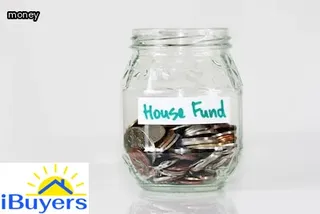When you lose your job, it can be difficult to keep up with bills and other expenses. Managing debt when you don't have a steady income can be overwhelming but there are strategies you can use to keep your finances under control.
Keeping track of your spending and creating a budget are important first steps in managing debt after job loss. Make sure to prioritize bills such as rent or mortgage payments, utilities, food, and insurance.
You may also want to consider contacting creditors to negotiate payment options and getting help from financial institutions or government programs like unemployment insurance. It's important to stay informed on the different options available so that you can make the best decisions for your situation.
Additionally, reaching out for support from friends and family can be helpful during this time. Staying organized and having a plan will help ensure that you're able to pay your bills while also giving yourself breathing room in case of unexpected financial issues.

Losing a job can be an incredibly difficult experience and many people find themselves struggling to make ends meet after finding themselves unemployed. Financial advice for the recently unemployed can help them stay afloat during this difficult time.
The first step is to create a budget that includes income, expenses, and savings. This will help you prioritize your spending, allowing you to focus on essential bills first and then more discretionary expenses later.
It is also important to take advantage of government programs such as unemployment benefits or food stamps if you are eligible. Additionally, it may be beneficial to look into debt consolidation options in order to lower monthly payments so that you don't fall behind on payments or into further debt.
Finally, try using cash when making purchases instead of credit cards so that you can track your spending more accurately and ensure that you don't overspend. With these strategies in mind, the recently unemployed can work towards rebuilding their financial security after a job loss.
When facing a job loss, it is essential to take action now and establish strategies for managing money troubles. Start by prioritizing bills and cutting out any unnecessary spending.
Create a budget and look for ways to reduce expenses. Look for short-term employment opportunities and consider taking on a part-time job or freelance work.
Research unemployment benefits that may be available in your area and consider applying for them if you are eligible. Consider reducing debt as much as possible while you are looking for work.
Reach out to friends and family who may be able to offer financial assistance, or find a non-profit organization that can help. Look into government programs such as Supplemental Nutrition Assistance Program (SNAP) if you are struggling with food insecurity, or Low Income Home Energy Assistance Program (LIHEAP) if utility bills are becoming difficult to pay.
Take advantage of free resources like local food banks, public libraries, or thrift stores that can help make ends meet while you work towards finding new employment.

Navigating your finances during a job loss can be an overwhelming and daunting task. However, having a plan in place to pay bills and survive financially is essential.
Start by creating an emergency budget that outlines how much money you have coming in and how much needs to go out each month. Prioritize important expenses such as housing, utilities, food, transportation, and medical costs that need to be paid first.
Look for ways to reduce unnecessary spending such as cutting back on entertainment or dining out. Consider other sources of income such as unemployment benefits or part-time work to supplement your income while searching for a new job.
Speak with creditors about payment plans or deferments so that you can still keep up with bills during financial hardship. Taking the time to create a budget, reduce spending, and speak with creditors are all strategies for surviving financially after losing your job.
When you unexpectedly lose your job, it can be an overwhelming experience. Living on less money than before is a reality that many have to face in order to make ends meet.
It's important to have a plan of action in order to insure you are able to pay your bills and survive financially. One strategy is to cut expenses wherever possible.
This could include reducing your grocery bill by cutting out expensive items, such as organic produce and packaged goods. Another way is to lower your utility bills by setting thermostats at lower temperatures or unplugging appliances when not in use.
You should also look into ways of generating income, such as taking up odd jobs or selling unwanted items online. Allowing yourself some wiggle room in the budget for occasional treats or luxuries can help keep you from feeling deprived and maintain motivation towards financial stability.
Additionally, seeking advice from a financial advisor or local resources can provide useful information about how to best manage your finances during this difficult time.

When you lose your job, it is important to quickly assess your finances and start making cuts in order to make ends meet. You may need to look for creative ways to reduce expenses and find savings wherever possible.
Start by creating a budget that takes into account your income, fixed expenses, and variable costs. Look at areas where you can cut back on spending such as dining out, entertainment, or clothing purchases.
Consider cancelling any subscriptions or memberships that are not essential. Research ways to lower your utility bills like switching providers or reducing usage of electricity and water.
Additionally, consider getting a part-time job or taking on freelance work while looking for a new full-time job to supplement your income. To save money on groceries, shop at local farmer’s markets when possible and make meals from scratch instead of buying pre-made items.
Taking the time to look for savings now can help you survive financially until you get back on your feet again.
When you lose your job and are unable to pay your bills, it can be a devastating experience. It is important to stay focused on surviving financially and have strategies in place to tackle the financial challenges that come with job loss.
There are a few things you can do when you can't pay your bills due to unemployment. First, get in touch with creditors as soon as possible and explain the situation.
Many creditors may offer payment plans or deferment options if they understand your circumstances. Try negotiating for lower payments or reduced interest rates, but make sure you keep track of all agreements made in writing.
Additionally, look into government assistance programs like SNAP or TANF that provide food stamps or cash assistance to help cover essential expenses while unemployed. Finally, consider getting a part-time job to supplement income until you are able to find full-time employment again.
With proper planning and budgeting, you can make it through this difficult time by taking control of your finances and making smart money decisions.

When you find yourself unemployed, it can be a difficult situation to manage financially. With bills continuing to come in, finding solutions to debt during unemployment can seem daunting.
One strategy for paying your bills when you don’t have an income is to prioritize essential expenses and cut back on non-essential spending. This could include things like rent or mortgage payments, groceries, and utilities as essential expenses; while non-essential spending would include dining out, entertainment, and luxury items.
You should also look into assistance programs or grants that are available in your local area or through the government. Additionally, you may want to explore payment plans that allow you to pay off your debt over time in smaller increments rather than one lump sum.
Finally, speaking with a financial advisor or credit counselor may provide additional guidance on how to navigate your particular situation.
Managing finances after a layoff or furlough can be difficult, but it is not impossible. It is important to be proactive and have a plan in place to ensure that bills are paid on time.
A good starting point is to create a budget, detailing all sources of income and expenses. This will help you prioritize payments and identify areas where you can cut back on unnecessary spending.
Additionally, it may be beneficial to contact creditors directly to negotiate payment terms such as reduced interest rates or extended payment deadlines. You should also consider seeking assistance from government agencies or non-profit organizations that provide financial counseling services or emergency grants for individuals in need.
Lastly, unemployment benefits may provide temporary relief while you are searching for your next job opportunity. By taking the necessary steps to manage your finances during this difficult time, you will be better prepared for the future.

When you lose your job, it can be difficult to know where to start in terms of taking control of your finances. It's important to take stock of the situation and develop a plan for managing your bills and other financial obligations.
One strategy is to create a budget and stick to it, so you are only spending what you can afford. Consider consolidating debt into one loan with a lower interest rate, or negotiating payment plans with creditors.
To make sure you have enough money to pay bills, look into unemployment benefits and other sources of income such as part-time jobs or freelance work. Additionally, consider reducing costs by cutting back on non-essential spending while looking for new employment opportunities.
Taking control of your finances after a job loss requires planning, but with proper management and self-discipline you may be able to survive financially until finding new employment.
When you are unexpectedly unemployed, it can be a difficult and stressful experience. Financial stress is a common issue for those who find themselves without a job and it can take some time to get back on your feet.
The key to minimizing financial stress when unemployed is to develop a strategy for paying bills that works for your current situation. This could include evaluating all of your potential sources of income such as unemployment benefits, government assistance, or part-time work.
It may also help to prioritize which bills need to be paid first or making payment arrangements with creditors that allow you to pay what you can now and the rest later. Additionally, finding ways to reduce expenses during this time, such as taking advantage of free resources or cutting back on unnecessary expenses, can make a big difference in helping manage the financial burden of being unemployed.
With careful planning and budgeting, it is possible to survive financially even after losing your job and minimize the financial stress that comes along with it.

One of the most important strategies for surviving financially after losing a job is to reduce expenses. Finding ways to cut back on spending can make it easier to pay bills and stay afloat until you find another source of income.
To reduce expenses, take stock of all your current bills and identify which ones are essential and which ones are not. Consider cancelling any unnecessary services, such as cable TV or subscription boxes, that you may no longer need or use.
It may also be worthwhile to look into cheaper alternatives for existing services such as switching to a more affordable cell phone plan or car insurance provider. Additionally, look into discounted services that offer lower rates than what you’re currently paying.
It’s also important to evaluate your day-to-day spending habits and find areas where you can cut back, such as eating out less often or skipping coffee runs in favor of brewing at home. Finally, try to negotiate with creditors if possible; they may be willing to lower interest rates or waive late fees temporarily while you get back on your feet financially.
After experiencing a job loss, it can be difficult to make ends meet. However, with creative strategies and planning, there are ways to survive financially and pay bills until you find another job.
A great place to start is by creating a budget that takes into account all of your monthly expenses. This will help you prioritize which bills need to be paid first and how much money you have left over for other needs.
Additionally, look for opportunities to generate extra income from part-time jobs or freelance projects. Selling unused items around the house or looking for ways to barter are other options as well.
Lastly, don't be afraid to reach out to family and friends for financial help if necessary. With some strategic planning and creativity, it's possible to make ends meet after a job loss.

After losing your job, it is important to focus on building an emergency fund. This money can be used to cover expenses that were previously covered by a paycheck such as rent and utilities.
By having an emergency fund in place, you can rest assured that you have access to money in the event of unexpected bills or medical expenses. Start by setting aside small amounts each month by cutting back on non-essential spending and reallocating that money towards savings.
If possible, look for additional ways to bring in income through side hustles or freelance gigs. You can also explore temporary employment opportunities if available.
Additionally, take advantage of any relief programs offered by the government or your local community. Through careful budgeting and wise financial planning, you can ensure that you are able to pay your bills even after losing your job.
When you are unemployed and unable to pay your bills, debt collectors can be relentless. It is important to know your rights and take steps to protect yourself from aggressive collection tactics.
The Fair Debt Collection Practices Act (FDCPA) makes it illegal for debt collectors to harass or intimidate you. They cannot threaten legal action, call you before 8 a.
or after 9 p., use obscene language or repeat calls with the intent of annoying or harassing you.
You have the right to dispute any debts they claim you owe, as well as the right to request verification of the debt in writing. You can also contact your state's Attorney General's Office if you feel that a debt collector has violated your rights in any way.
Additionally, if you are facing financial hardship due to unemployment, most creditors are willing to work with you on repayment arrangements until you can get back on your feet financially.

When you have lost your job, you may be concerned about how to pay your bills and whether there could be tax implications. As soon as you become unemployed, inform the government of your change in circumstances.
This is important because, depending on your income level, you may qualify for certain tax credits that can help with debt repayment. Additionally, when filing taxes after being unemployed, make sure to include any unemployment benefits received in the taxable income section.
You may also need to pay estimated taxes if self-employed or working freelance during your period of unemployment. If you are unable to pay taxes due or other debts when they are due, speak with the IRS or a qualified financial advisor about possible options for repayment such as an extension or installment agreement.
It is important to stay on top of payments and filing requirements during this time so that the situation does not become more difficult down the road.
When a job loss occurs, it can be difficult to make ends meet. Many people find themselves facing mounting debts and are unsure of how to handle them.
Fortunately, there are options available that may provide relief from the financial burden of unemployment. These include government assistance programs, debt consolidation, refinancing, and negotiating with creditors.
Government assistance programs such as unemployment benefits and food stamps may help cover day-to-day expenses while allowing individuals to focus on paying down their debt. Debt consolidation can also alleviate financial strain by combining multiple payments into one simple monthly payment at a lower interest rate.
Refinancing loans is another option, as this may reduce monthly payments or extend the length of the loan for additional time to pay off debt. Finally, negotiating with creditors can help individuals avoid late fees or negotiate a reduced payment plan that fits within their budget.
Although it is not easy to face the financial realities of unemployment, exploring these options can help relieve some of the stress associated with large amounts of debt due to job loss.

If you have recently lost your job, it can be difficult to stay on top of all your bills. It is important to prioritize and focus on those that are most urgent, while trying to come up with a plan for paying the rest.
One way to manage debt after a layoff is by consolidating and negotiating with lenders. Consolidating debt involves combining multiple loans or credit card balances into one loan with a single monthly payment.
This can help make payments more manageable as well as reduce interest rates. Negotiating with creditors may also be beneficial in paying off debts.
You could try asking for lower interest rates or for them to waive late fees or penalties. Additionally, it is important to communicate with creditors during this time so they know what you are going through and can better assist you in finding solutions.
When you lose your job, it can be an emotionally and financially difficult time. It’s easy to make mistakes that could cost you down the line, so it’s important to know what NOT to do after a job loss.
Avoiding pitfalls is key for surviving financially after losing your job. First and foremost, don’t let yourself panic and make rash decisions.
Don't take out massive loans or use credit cards as your primary source of income. Doing this will only put you in more debt and add more stress.
Additionally, try not to cut all of your expenses at once as this could lead to potential financial problems in the future if unexpected costs arise or when you land your next job. Lastly, don’t drain your savings account or retirement funds if it can be avoided, and consult with a financial advisor before making any major decisions about money.
Surviving financially after losing your job may seem daunting but by avoiding these pitfalls you can stay on track while looking for new employment opportunities.
Losing a job can be devastating, especially if you don’t have any savings to fall back on. But there are still ways to make it through the tough times and keep your finances afloat while you search for new employment. Here are some strategies to help you survive financially after losing a job:
Create a budget: The first step is to create a budget that accounts for all of your fixed expenses such as rent, utilities, and car payments. Knowing exactly where your money is going will help you prioritize your bills and determine which ones are most important to pay first.
Utilize government assistance programs: If you meet certain eligibility requirements, look into government assistance programs such as Unemployment Insurance or Supplemental Nutrition Assistance Program (SNAP) that can provide temporary financial relief while you look for a new job.
Consider part-time work: Working part-time or taking on freelance projects can also be great sources of income while you’re searching for full-time employment.
Negotiate with creditors: Reach out to your creditors and explain your situation in order to try and negotiate payment plans or reduced interest rates that fit within your budget.
Tap into emergency funds: If available, use any emergency funds or savings accounts to cover essential bills until you find a new job.
Reach out for help: Don’t hesitate to reach out to family and friends if you need additional support during this difficult time – they may be able to offer financial assistance or other kinds of help that could make the transition easier for you. By following these strategies, it is possible to survive financially after losing a job and stay afloat until you find new employment again – even if it takes longer than expected!

If you’ve recently lost your job, it can be difficult to know how to survive financially during unemployment. The key is to develop a plan and take the necessary steps to ensure you are able to pay your bills. Here are some tips for surviving financially during unemployment: Start by creating a budget that reflects your current situation.
List all of your monthly expenses, such as rent, utilities, groceries, and debt payments. Then calculate how much money you have coming in each month through unemployment benefits or other resources. This will give you an idea of what you need to do in order to survive financially while unemployed.
Next, prioritize your bills by importance. Make sure essential bills such as rent and utilities are paid first. If possible, look into payment plans or deferment options for non-essential bills such as credit cards or car payments so they don’t become too overwhelming.
In addition to budgeting and prioritizing bills, consider applying for public assistance programs that can help cover basic needs such as food and medical care while unemployed. Many states offer temporary cash assistance for families who have lost income due to job loss or reduced hours due to COVID-19 restrictions. Additionally, look into government grants that are available specifically for those who are unemployed or underemployed due to economic crises like the current pandemic.
Finally, look into ways of increasing your income while unemployed. For example, consider freelancing online or taking on odd jobs in order to make ends meet until you find more consistent employment again. You may even be able to use skills from your former job such as writing or graphic design in order to create an income stream until you get back on your feet again financially after losing your job.
By following these strategies for surviving financially after losing a job, you’ll be able to pay your bills and stay afloat until permanent employment is found again.
When you’re faced with financial hardship after losing your job, it's important to understand what happens when you can't pay all your bills. Struggling financially can make it difficult to cover everyday expenses and keep up with debt payments.
If you fall behind on paying your bills, creditors may start pursuing collection actions, such as charging late fees or sending letters that threaten legal action. In some cases, creditors may even take you to court and obtain a judgment against you if they are not paid back.
Fortunately, there are strategies that can help you manage your finances and pay down debt during hard times, like negotiating payment plans or consolidating debts into one loan. While it may be difficult to stay on top of bills while out of work, the key is to remain proactive and get help if necessary.
If you have been recently laid off and are struggling to pay your bills, it's important to take action quickly. Start by assessing your financial situation and creating a budget.
Make sure to prioritize immediate needs like food, housing, and transportation costs. Consider applying for unemployment benefits or other types of public assistance if you qualify.
Look into ways to cut expenses like canceling unnecessary subscriptions or eliminating dining out costs. If possible, try to find a part-time job or freelance work that can help cover basic bills while you look for a new full-time job.
Additionally, research different debt relief options such as credit counseling services or loan consolidation programs that may be able to provide some assistance in paying off bills. Lastly, reach out to family and friends who may be willing to lend support during this difficult time.